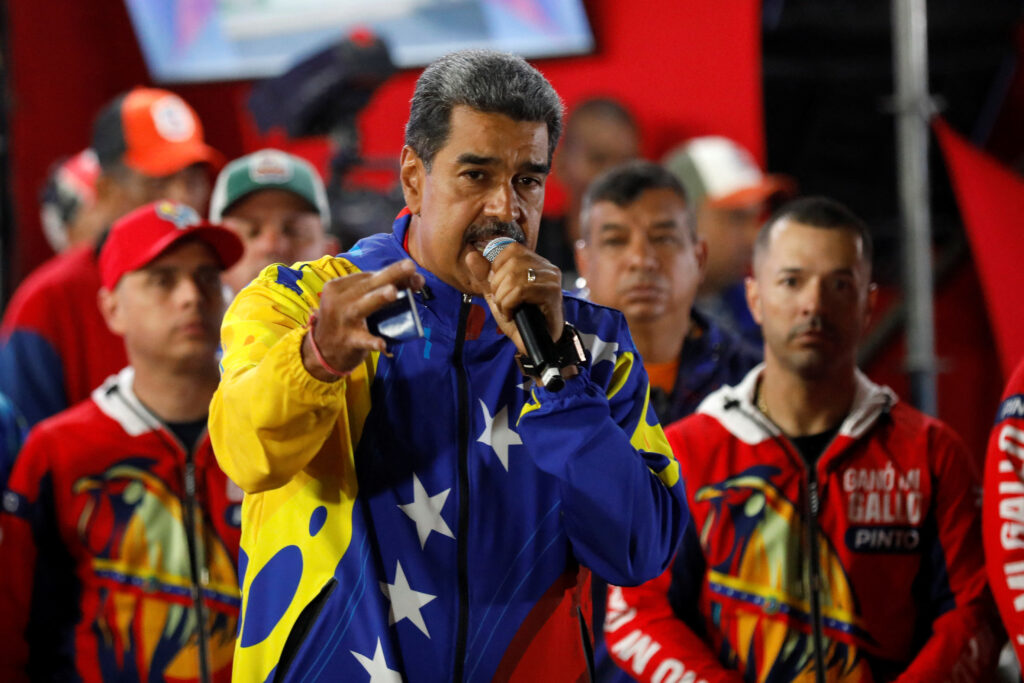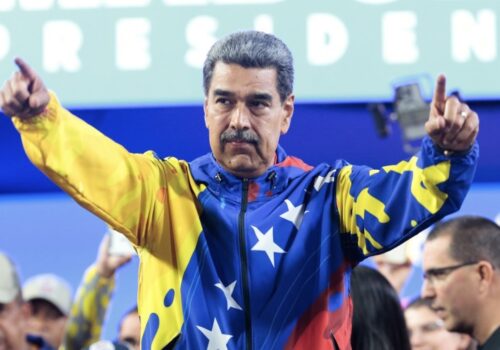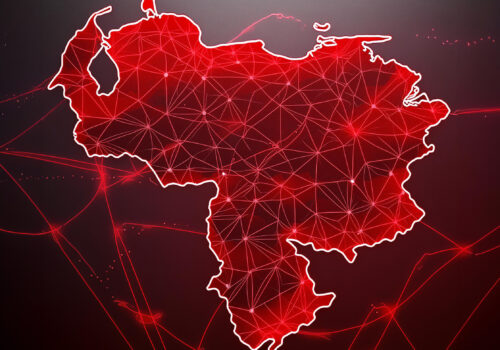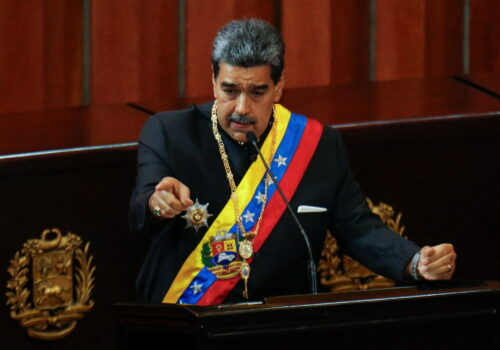JUST IN
He’s not giving up without a fight. Venezuelan President Nicolás Maduro’s election commission declared him the winner in Sunday’s vote, despite ample evidence of fraud and intimidation. Opposition candidate Edmundo González declared victory as the United States and other countries expressed concerns about the results. What will be the opposition’s next move? How will Maduro respond? And what role will regional and global powers play? We polled our experts for the answers.
TODAY’S EXPERT REACTION COURTESY OF
- Jason Marczak (@jmarczak): Vice president and senior director of the Atlantic Council’s Adrienne Arsht Latin America Center
- Iria Puyosa (@NSC): Senior research fellow at the Atlantic Council’s Digital Forensic Research Lab
- Geoff Ramsey (@GRamsey_LatAm): Senior fellow at the Adrienne Arsht Latin America Center
How to steal an election
- The stage was set for this moment in the months leading up to the vote, when the regime banned opposition leader María Corina Machado, with González ending up on the ballot. Then, as Jason points out, only small delegations from the United Nations and the Carter Center were allowed to monitor the vote, meaning “the González campaign could only count on its own observers to verify results.”
- The González camp said he won about 70 percent of the votes that his team was able to verify—while Venezuela’s National Electoral Council claimed that González won 44 percent of the vote, with Maduro earning 51 percent. Jason notes that “it would be a mathematical miracle for Maduro to prevail” based on how the opposition has described the votes that it has seen.
- The public isn’t fooled, Iria tells us, noting the “outpouring of messages and videos on social media” from witnesses on the ground indicating their certainty that González won. “This is strengthening the opposition’s unity and determination to continue its fight for the restoration of democracy,” she adds.
- As of this afternoon, those voters are mobilizing in the streets, creating a new test for the regime. “Maduro has to convince the ruling elite that he can keep things under control, but both he and the military know that he can’t govern a country in flames,” Geoff says. “He’s effectively inviting the biggest loyalty test he’s faced in years.”
Pressure from abroad
- In addition to the “serious concerns” expressed by US Secretary of State Antony Blinken, several countries throughout the region called for more transparency around the vote count—including neighboring Colombia, where, as Jason notes, “President Gustavo Petro has maintained a close relationship with Maduro.”
- Without full results and an independent audit, “the international community has no choice but to respond with swift condemnation and diplomatic pressure,” Geoff says, with the United States and its allies in Latin America and Europe playing a crucial role.
- That international pressure will be important to uphold the will of Venezuelans, but there are self-interested reasons for regional and international powers to push for change. Jason says another six years of Maduro will lead to “new outward migration flows and new transnational criminal activity that will extend far beyond Venezuela’s borders.”
Crackdown at home?
- The major point of contention will be sanctions, which the United States reimposed in April after the Maduro government didn’t uphold its end of last year’s deal to hold free and fair elections. “I doubt Venezuelan elites are eager for six more years of repression, sanctions, and economic catastrophe,” Geoff says.
- The opposition, therefore, should “exploit divisions within the ruling coalition,” Iria says. At the same time, opposition leaders should “find ways to address public discontent without exposing the population to the violent repression experienced in 2017.”
- And if Maduro were to return to the bargaining table, it would look very different from the negotiations between the government and the opposition, Iria tells us. Now, she says, negotiations would no longer be about electoral conditions “but rather on Chavismo’s exit from power after its defeat in the voting booths. The next six months will be a crucial period of intense conflict in Venezuela.”
Further reading
Mon, Jul 29, 2024
Experts react: Maduro is clinging to power after a disputed election. What’s next for Venezuela?
New Atlanticist By
Venezuela’s National Electoral Council has declared incumbent Nicolás Maduro as the winner of Sunday’s presidential election, in the face of widespread accounts of voter intimidation and other irregularities.
Mon, Jul 22, 2024
How Venezuela became a model for digital authoritarianism
Report By
As Venezuelans head to the polls on July 28, the massive online surveillance apparatus developed under incumbent Nicolás Maduro watches street video, monitors social media and phone communications, and gathers data from online movements. What's behind this digital repression—and will it spread?
Thu, Apr 18, 2024
Experts react: The US just reimposed sanctions on Venezuela. What does this mean for energy markets and Venezuela’s election?
New Atlanticist By
The United States will reimpose oil sanctions on Venezuela, faulting Nicolás Maduro’s government for failing to uphold the October 2023 Barbados Agreement.
Image: Venezuelan President Nicolas Maduro speaks after the presidential election in Caracas, Venezuela July 29, 2024. REUTERS/Fausto Torrealba



